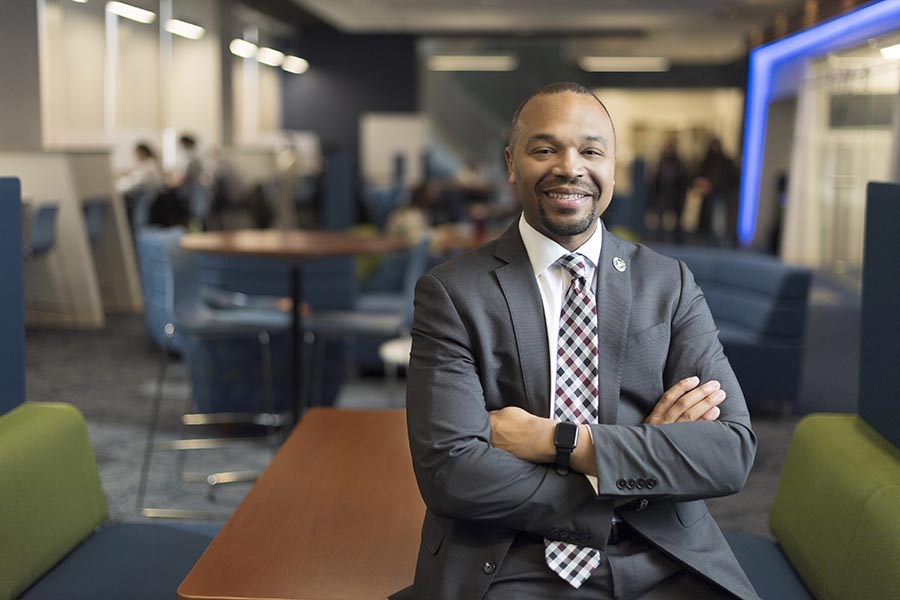
Integrating Disciplines - IBE student blends management with engineering
It’s unusual for a student to select a college based on a particular major, but that’s partly what led first-year student Gia Bao Tran to leave his home in Saigon, Vietnam, and enroll at Purdue’s Krannert School.
Tran’s choice was the Krannert School’s new Integrated Business and Engineering (IBE) degree program, which enrolled its first cohort of undergraduates in the fall 2021 semester in partnership with Purdue’s College of Engineering.
An evolution of Krannert’s BS in Industrial Management program, the IBE program is producing students with a business degree and an engineering background that sets them apart from others. IBE students primarily take engineering courses in their first year, followed by a solid foundation of business courses in their sophomore year. From there, they choose from a menu of electives, graduating with 20+ hours of engineering courses, 40+ hours of business courses, and 12 hours of specialty area electives.
“I chose IBE because I believe it is the perfect combination of my academic strengths and personal interests. In the classroom, I genuinely enjoy natural science classes such as physics, chemistry and math,” Tran says. “I find great joy in solving problems and learning about the fundamentals of how the world works.
“Away from the classroom, I am quite business-minded and frequently think about business optimization. I often question the rationale behind the way a business operates and why they are not using another alternative.”

Tran’s favorite course so far has been Engineering Projects in Community Service (EPICS), a design program in which teams of students partner with local and global community organizations to address human, community, and environmental needs.
“EPICS is a great simulation of the work environment where we are able to apply the theories we have learned in our other classes,” he says. “It is also multi-dimensional as you cannot just be a conventional engineer. Since most projects are community-based, it is important to deeply understand the targeted consumers and create a product that is suitable in all aspects including costs and environmental impacts.”
In addition to building his technical and business skills, the IBE program has introduced Tran to the importance of collaboration.
“The skill I have developed the most through my Krannert experience thus far is not only working in a team, but also to maximize each member’s potential,” he says. “Most education systems place emphasis on individual success. While that is still prominent, working together is the most efficient and sustainable way of growing and achieving goals.”
Krannert’s curriculum is helping Tran develop other skills, too. “The content that I've been learning comes with a lot of physical examples so that students can see the applications to real life,” he says. “I find that helpful because when you learn without knowing the application, you have not yet understood the concepts.”
Tran has also participated in two case competitions as a freshman. “These experiences have helped me understand business cases in general and the processes a company will need to follow to solve an existing problem,” he says. “By solving each of these cases in a team, I was able to learn the ways different people approach problem solving and group work, which has helped me refine the way I approach problems and expand the scope of my creativity.”
One of the pleasant surprises that Tran has encountered is the “general ethos” of Krannert and Purdue as a whole. “Despite being super competitive and really wanting to do well, everyone is so friendly and willing to help,” he says. “That is the exact environment I want to be a part of.”




